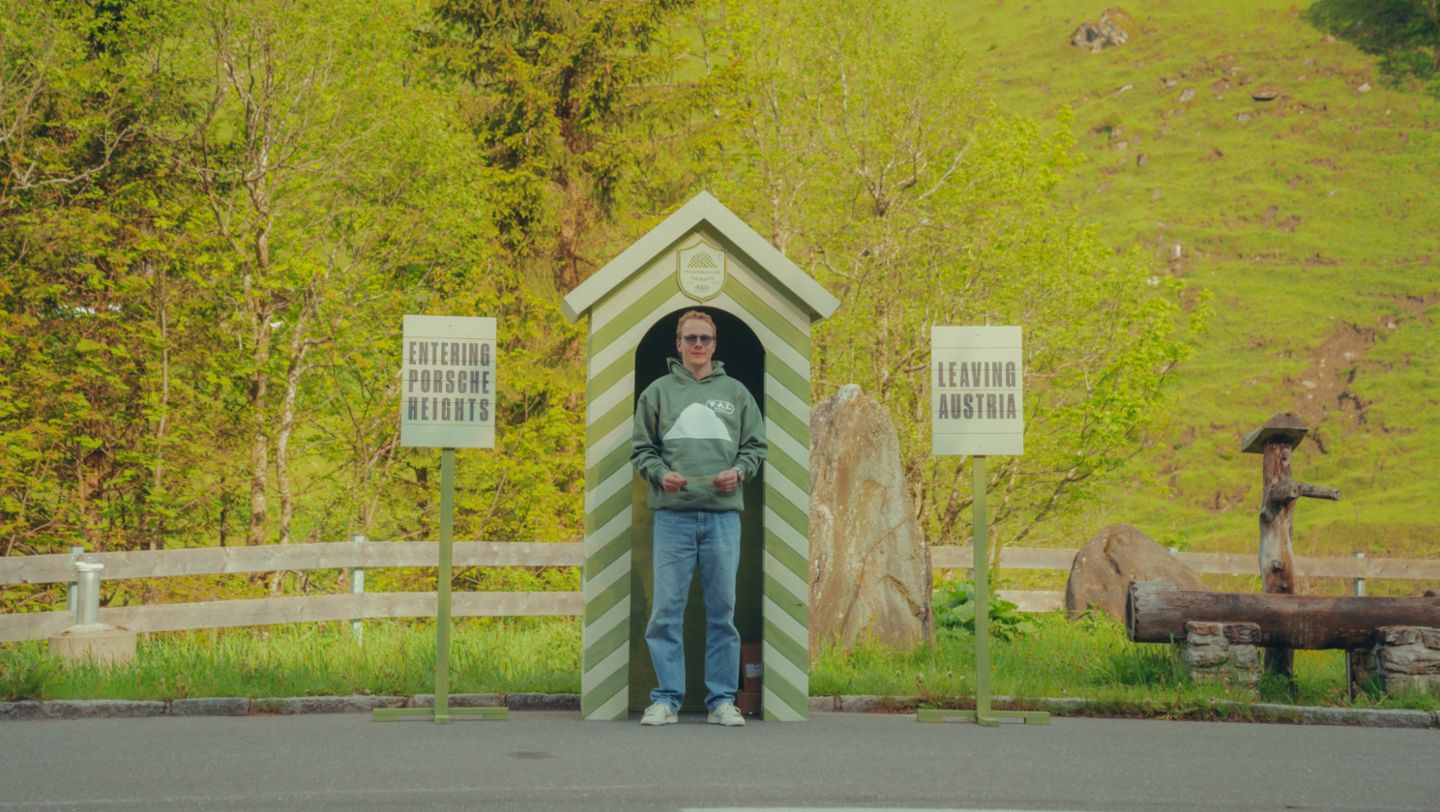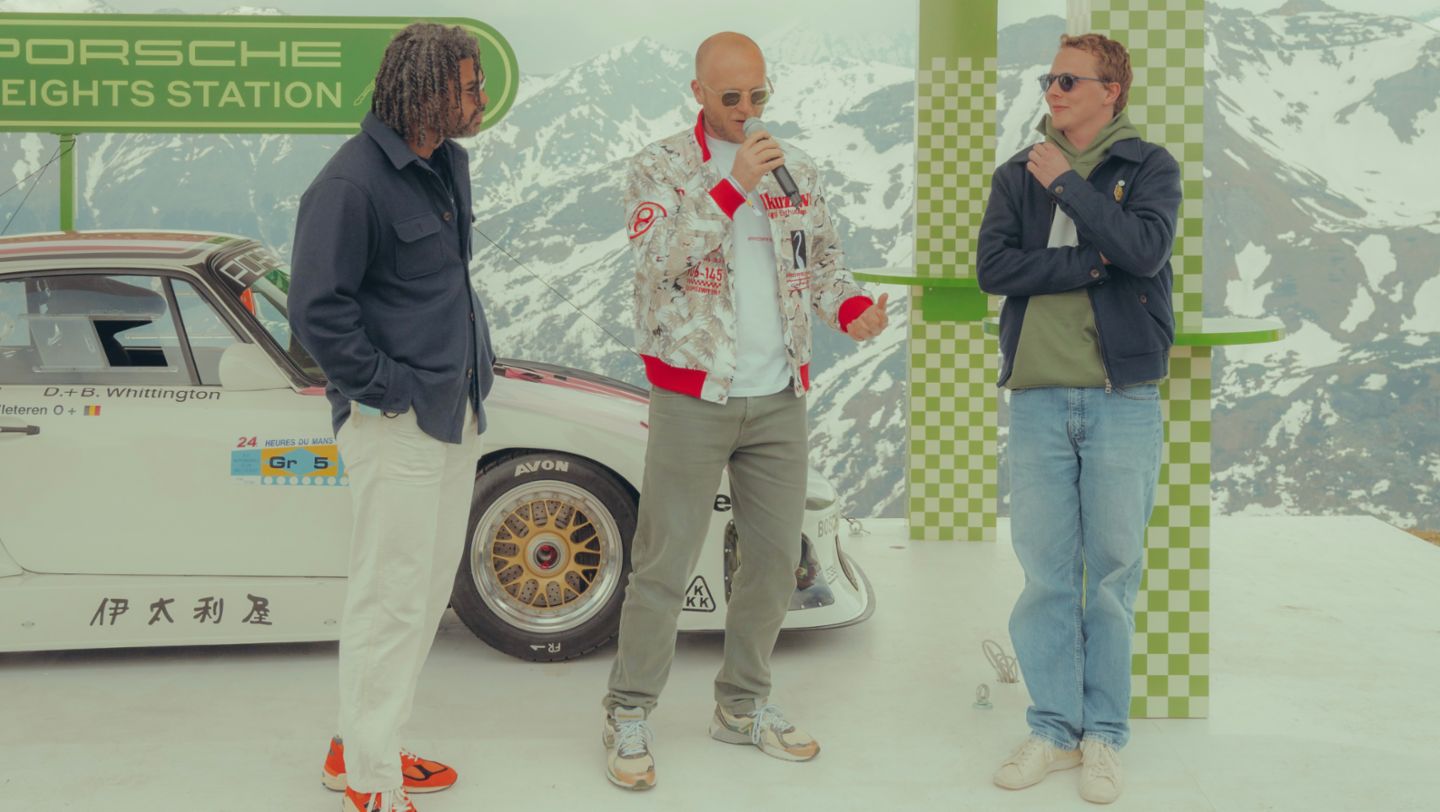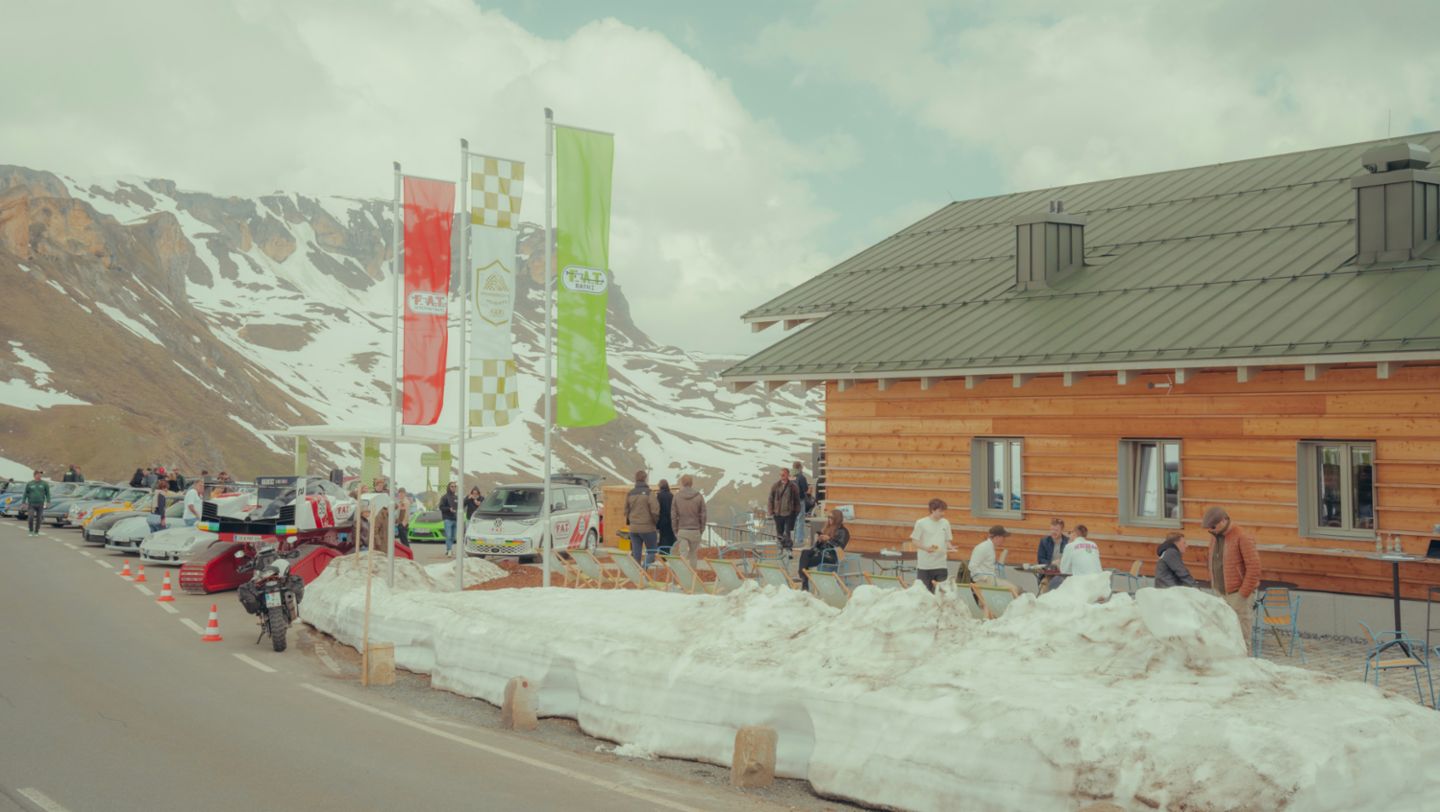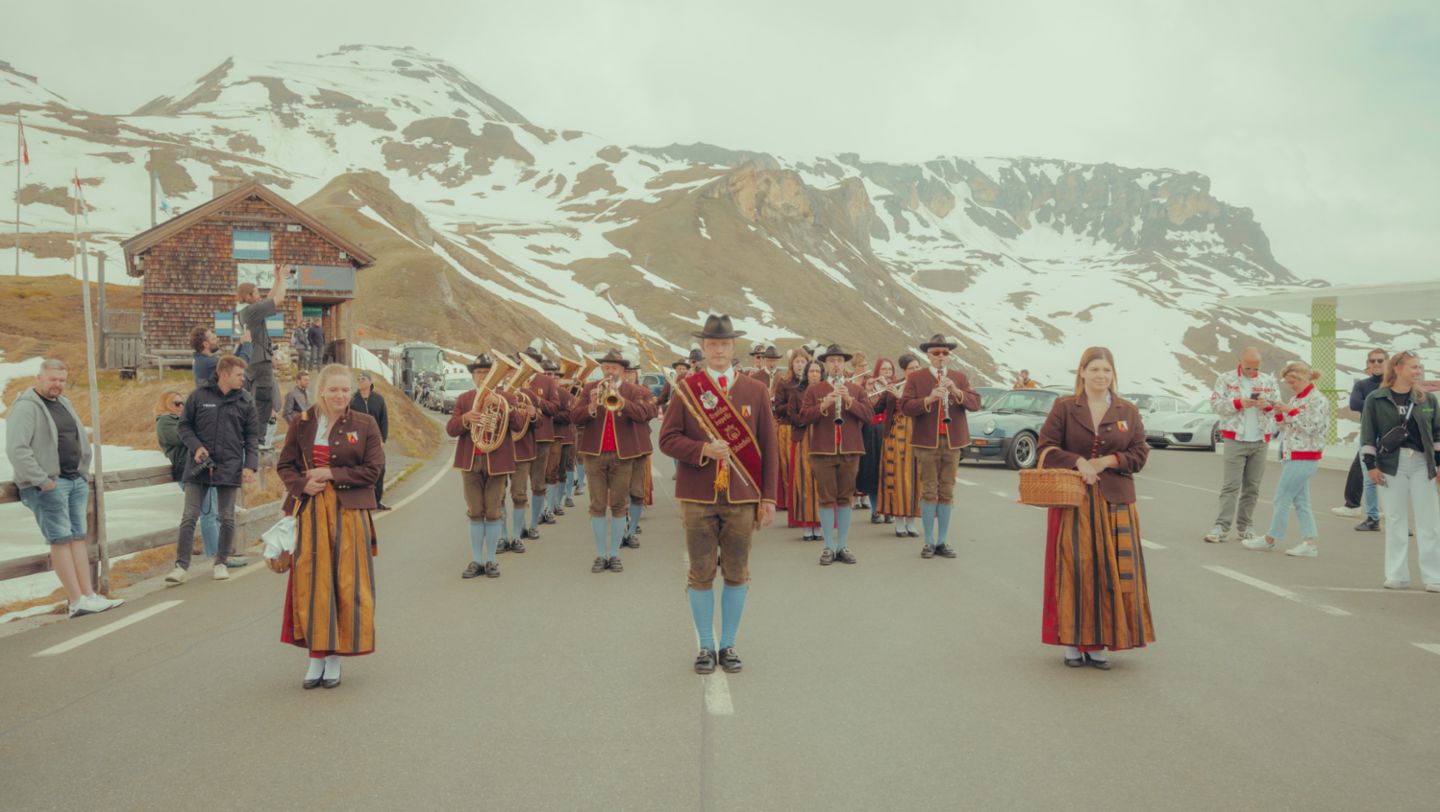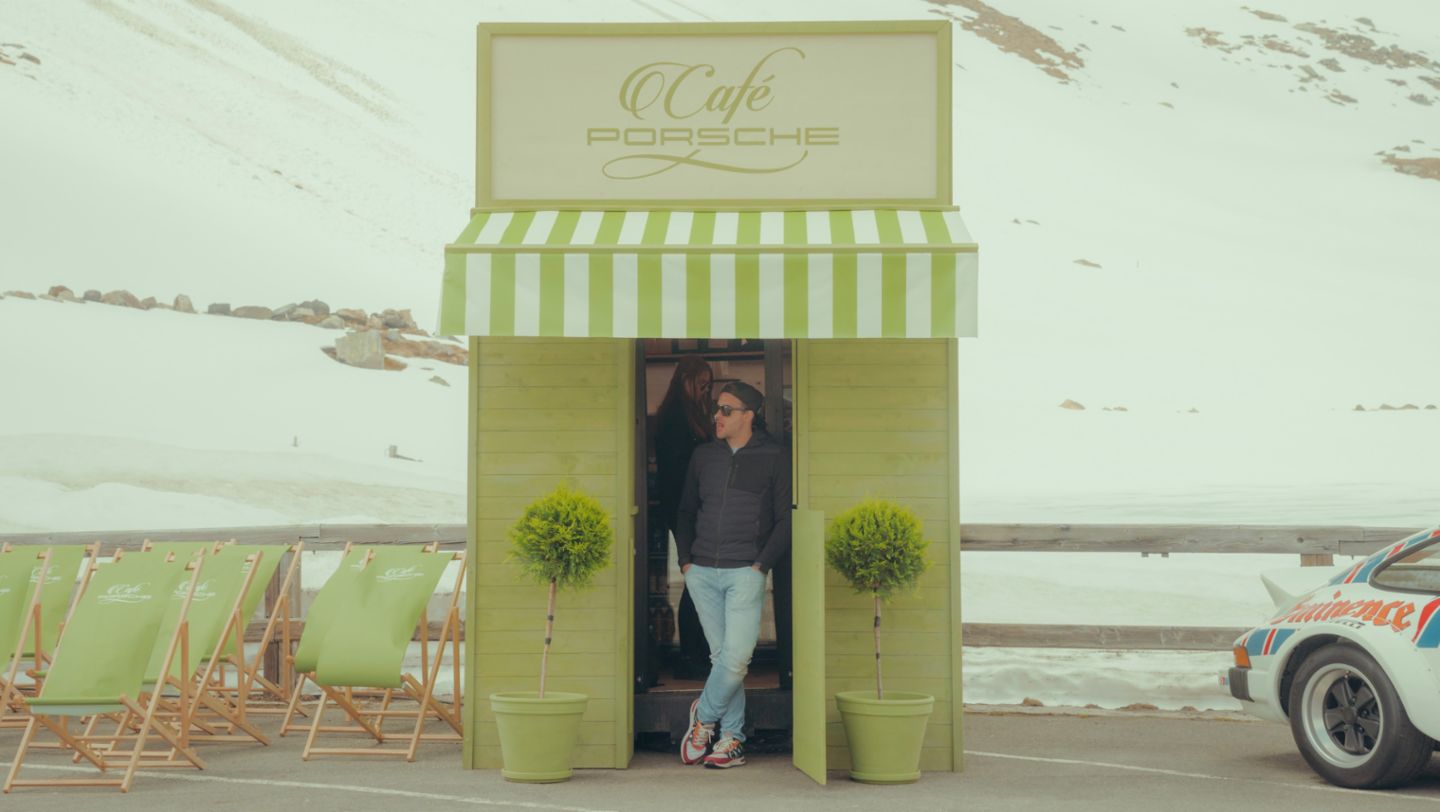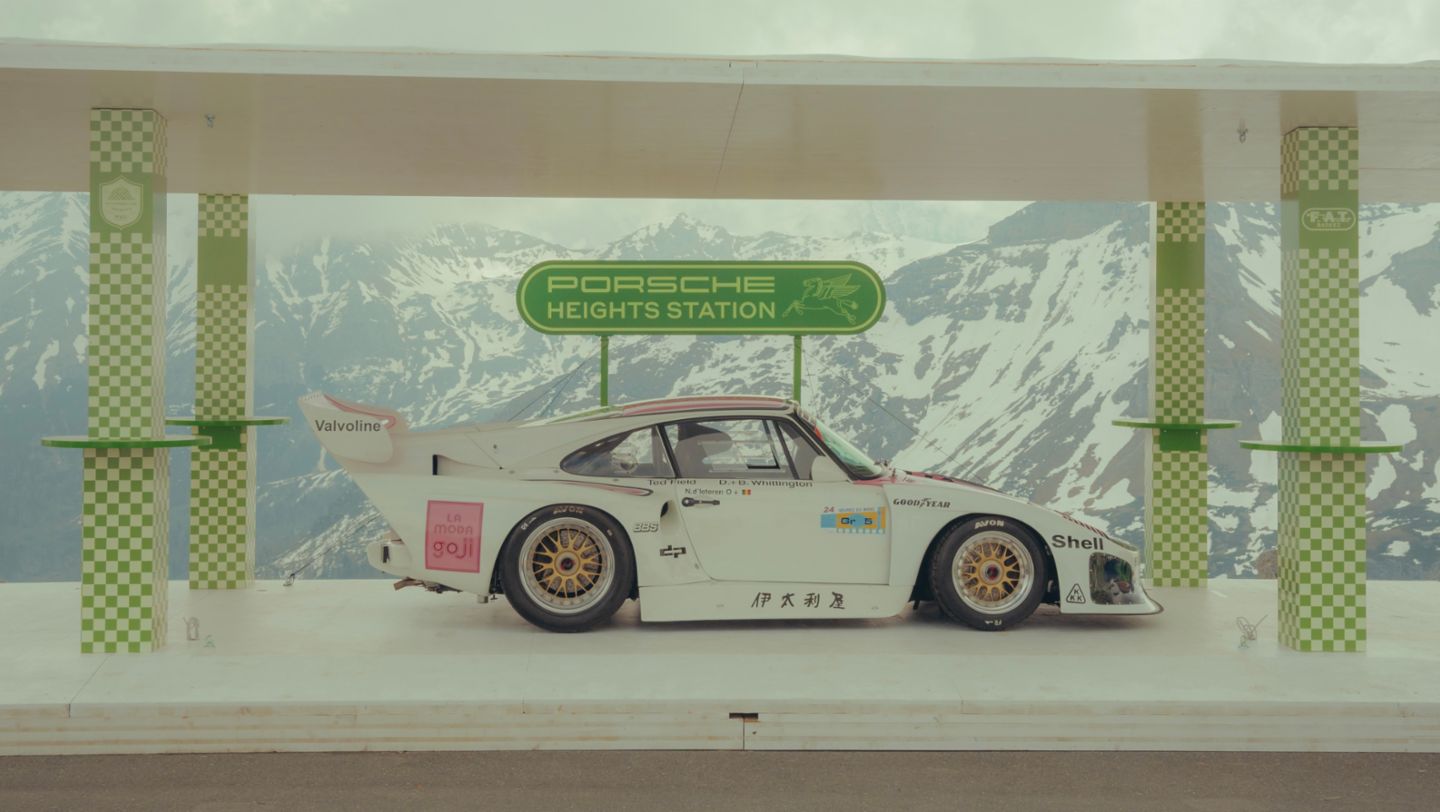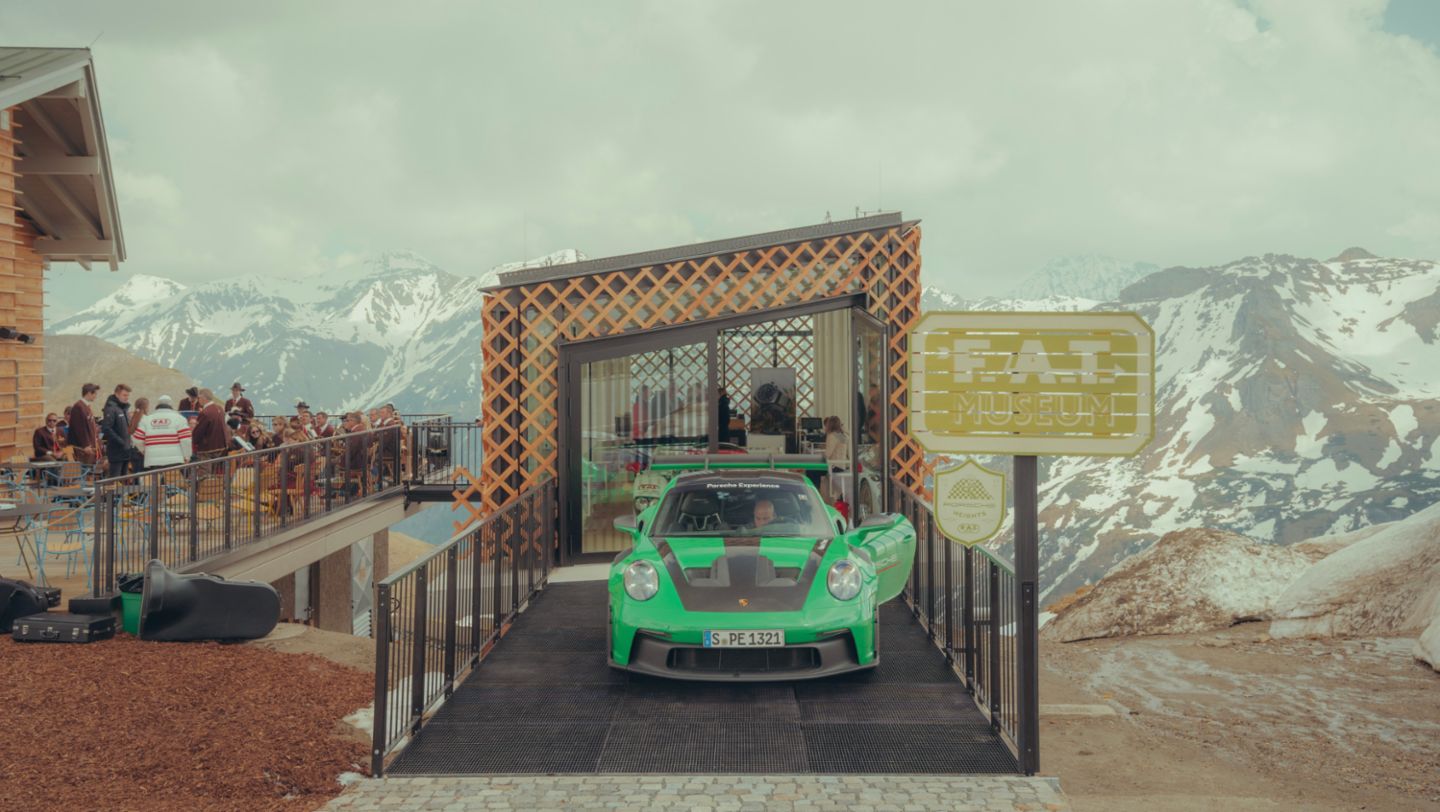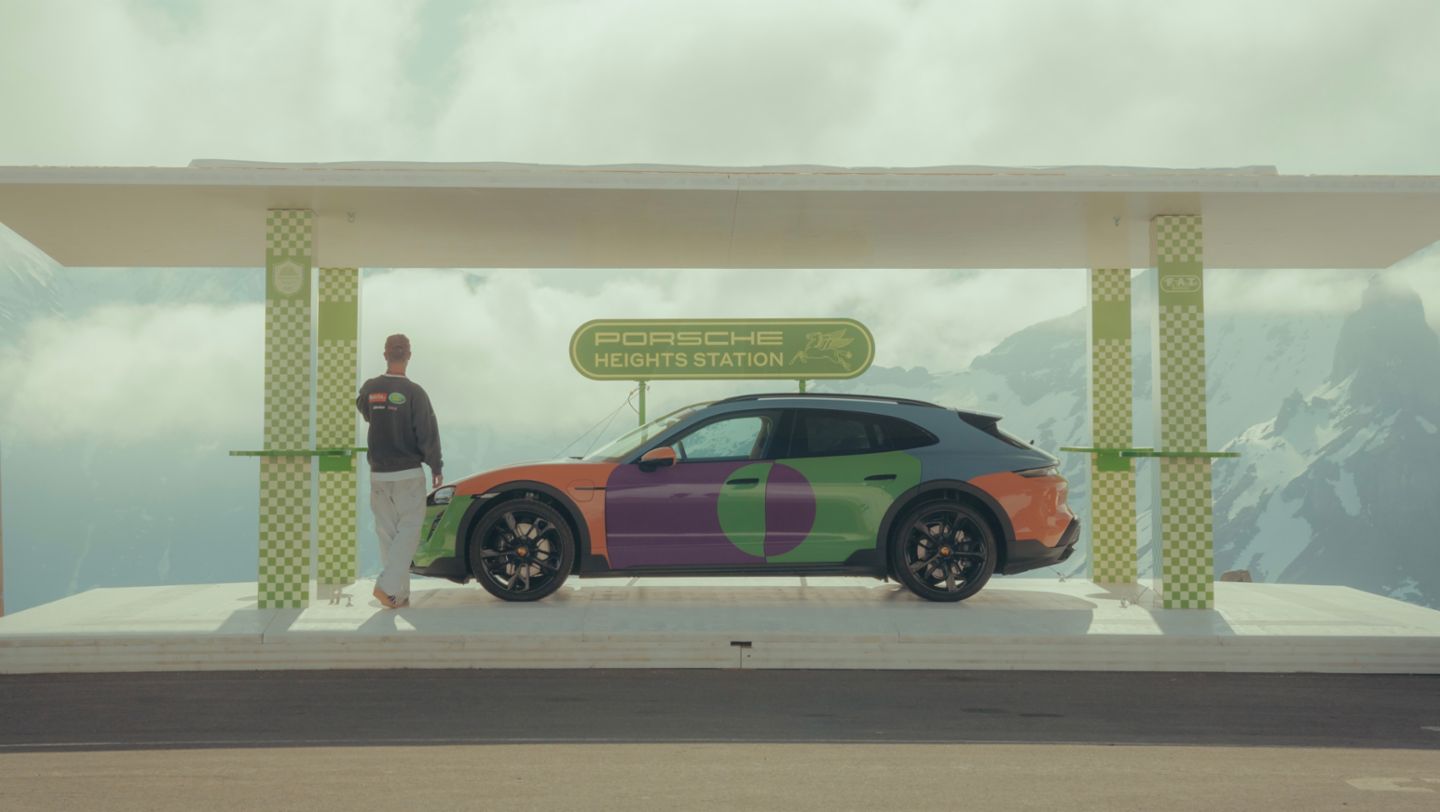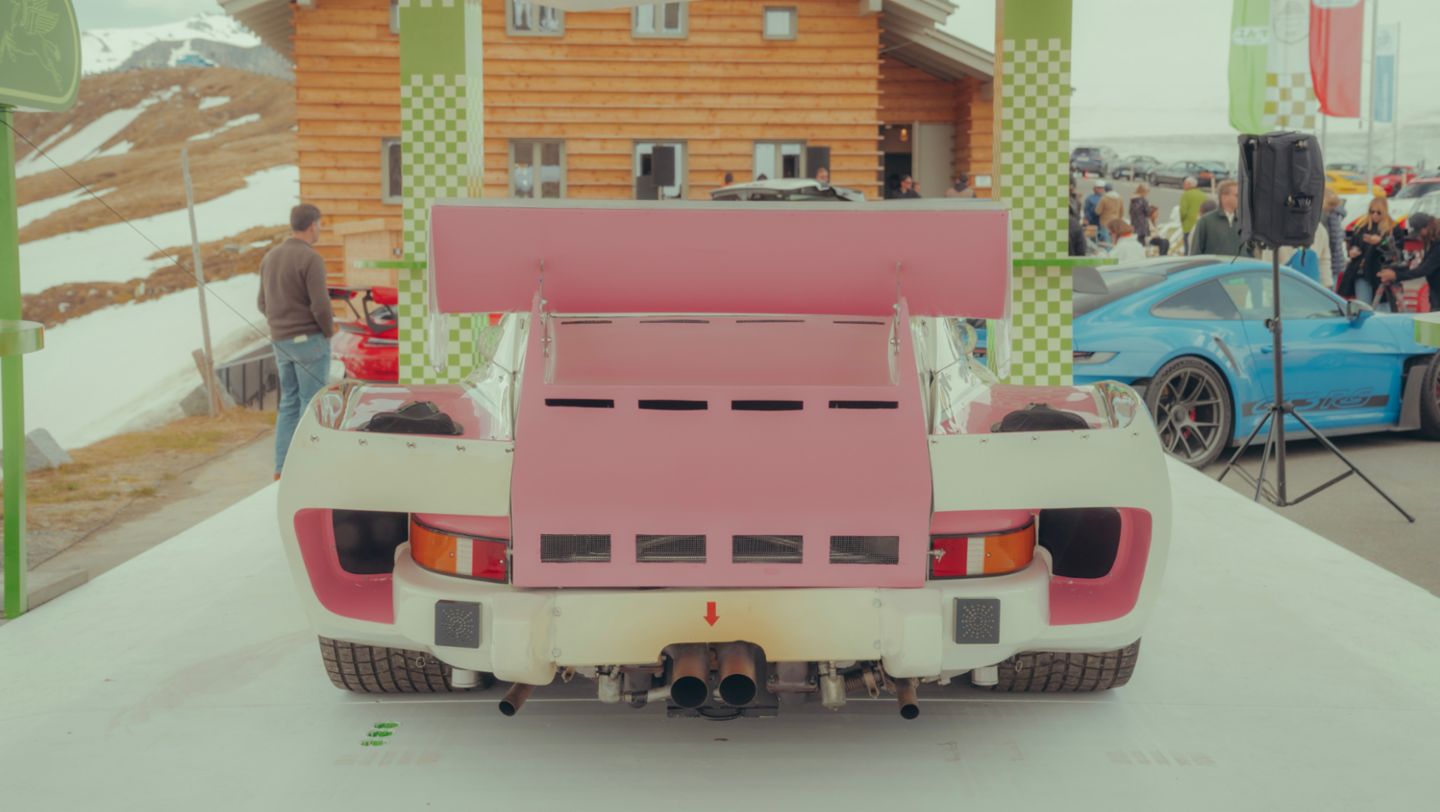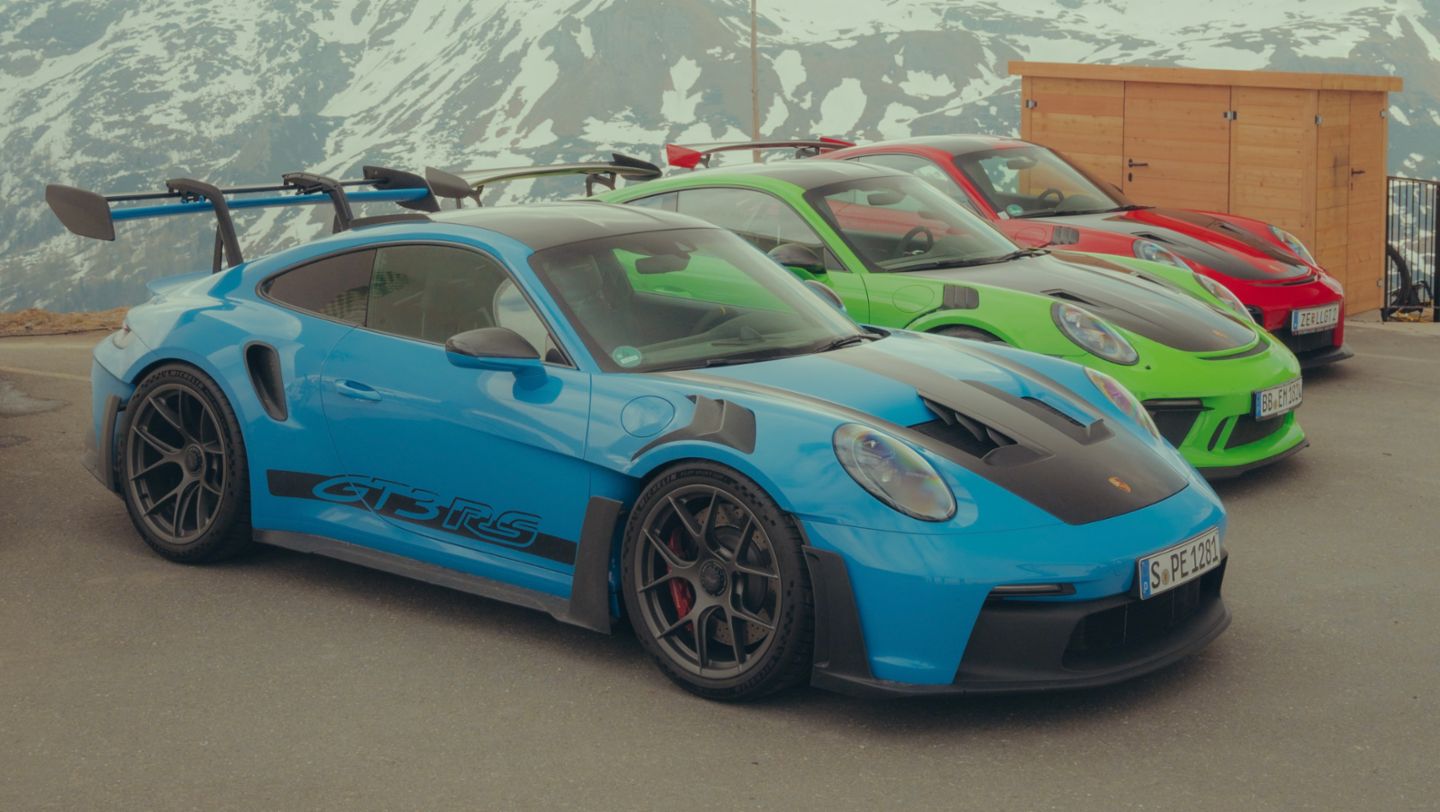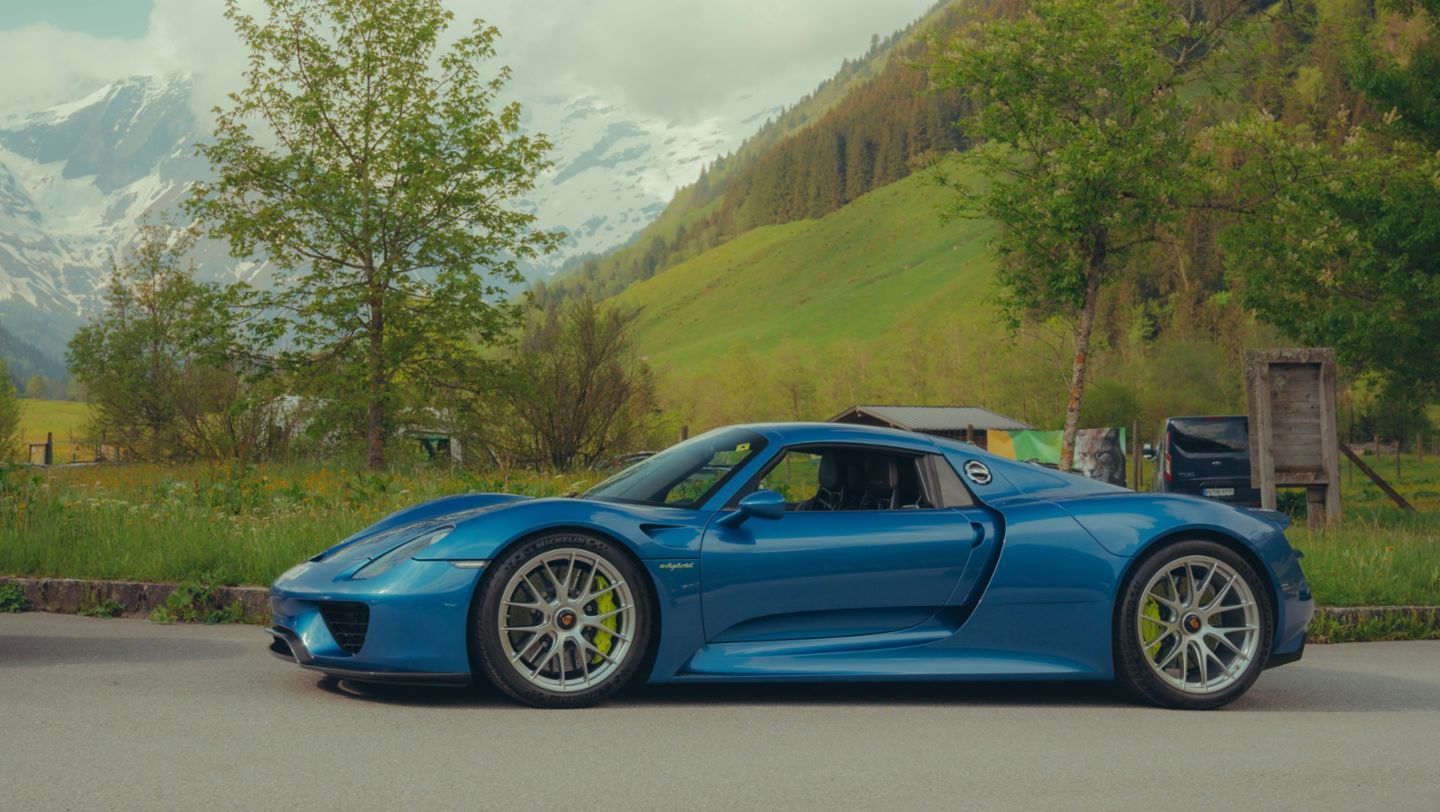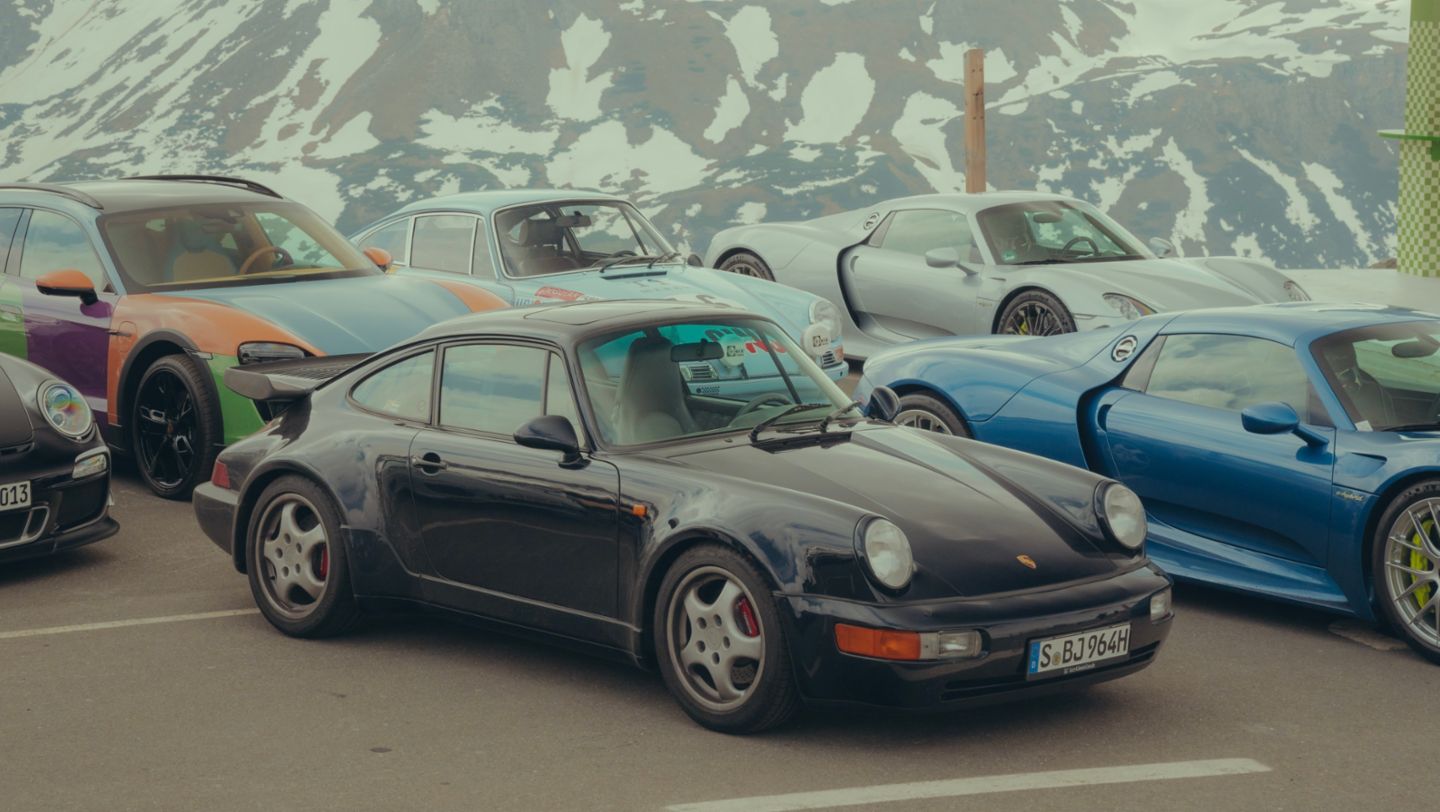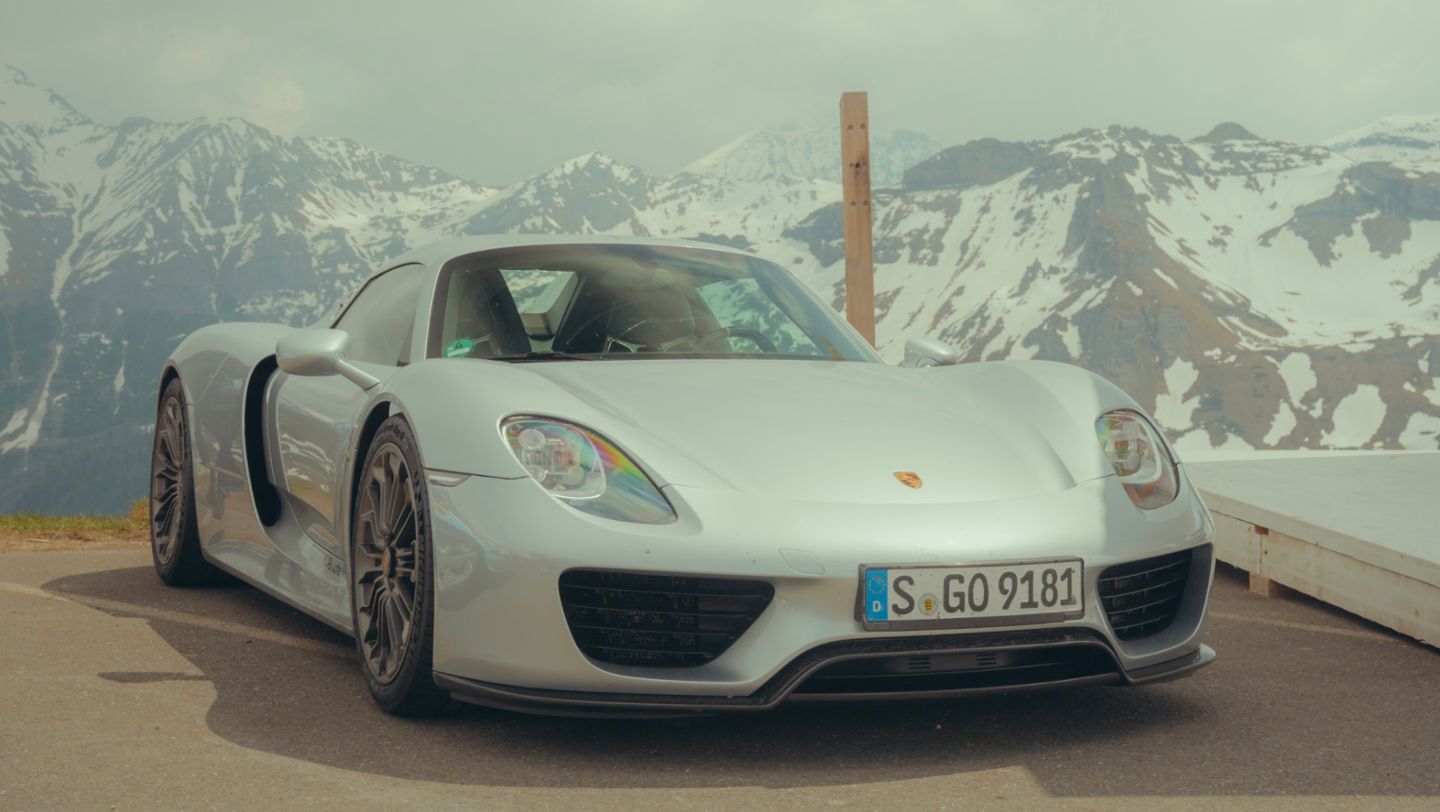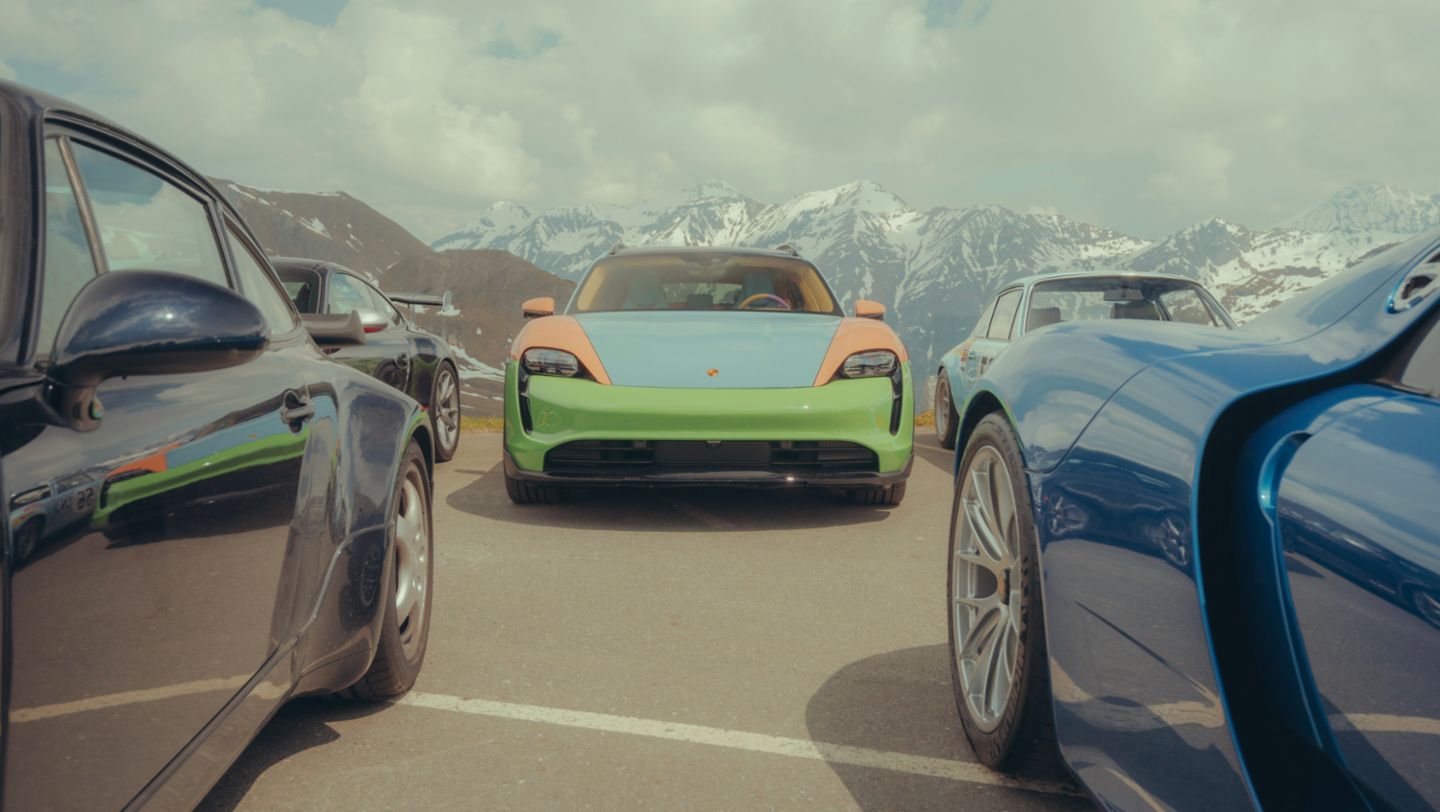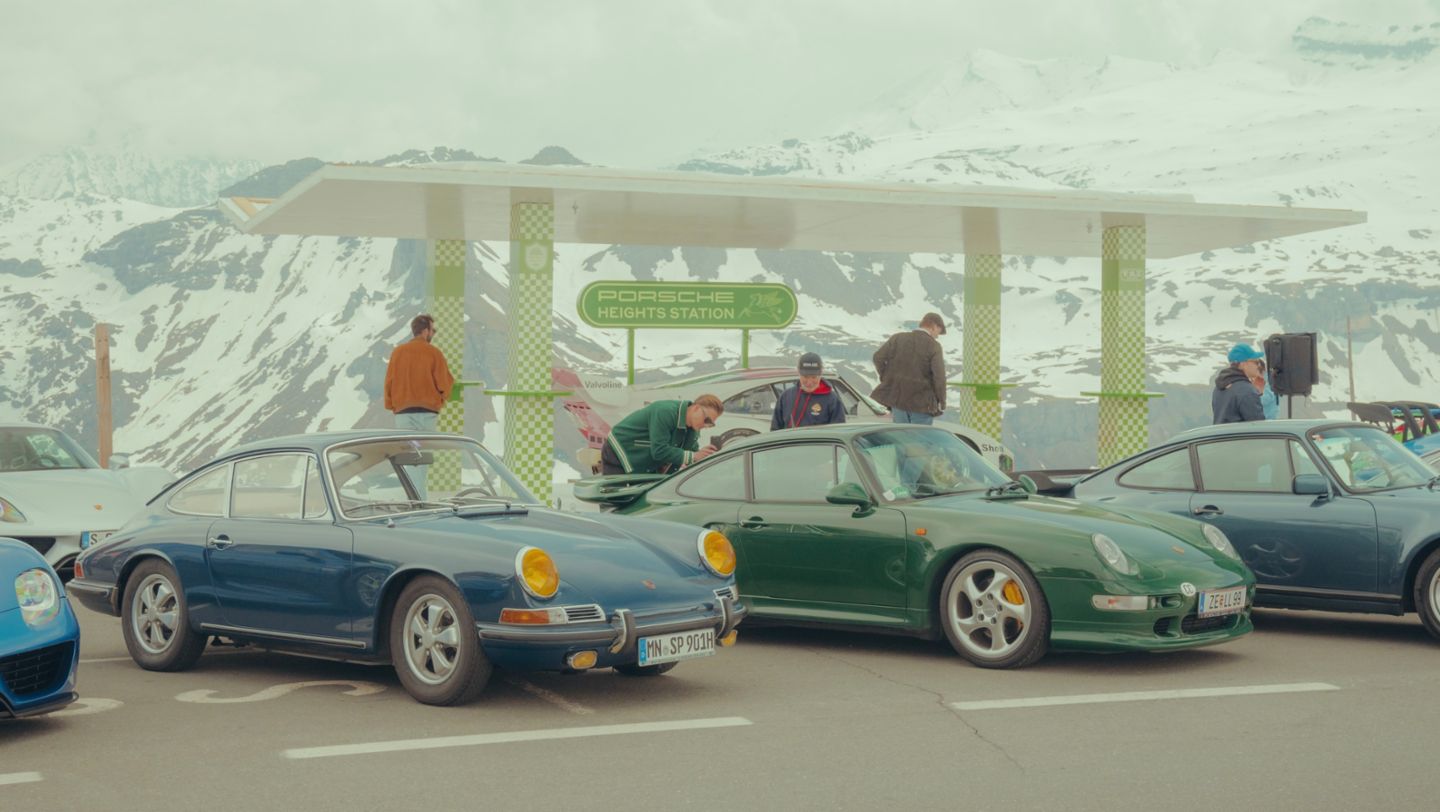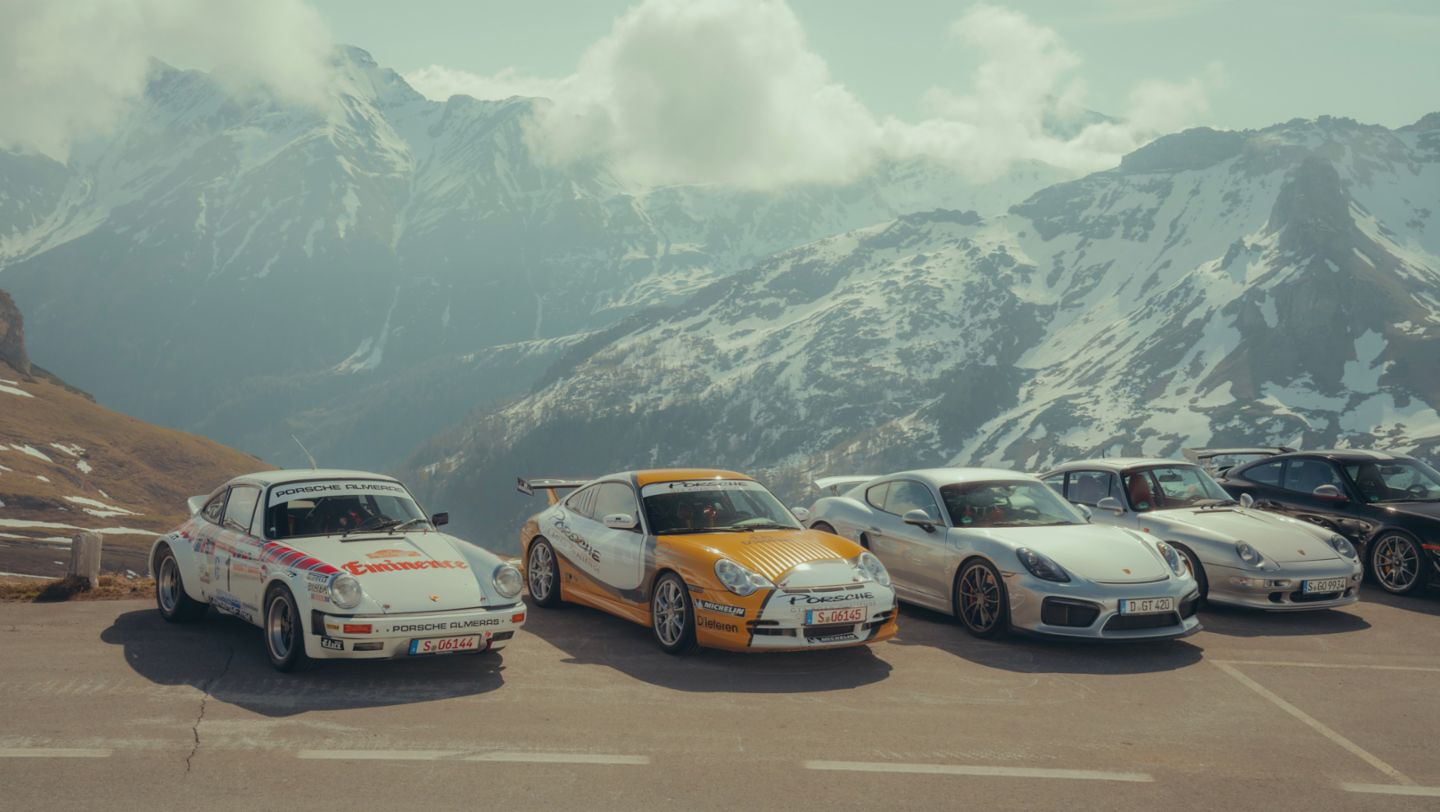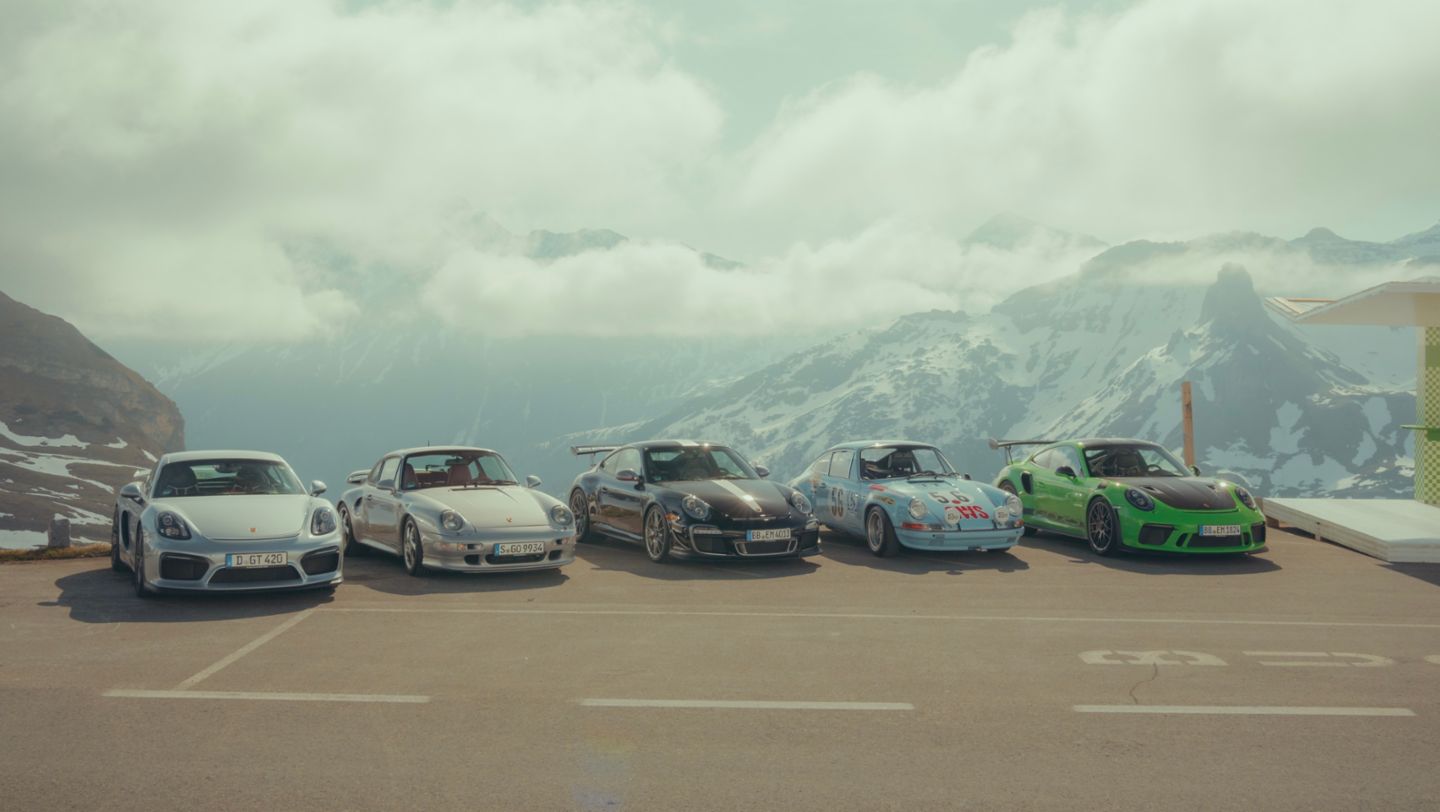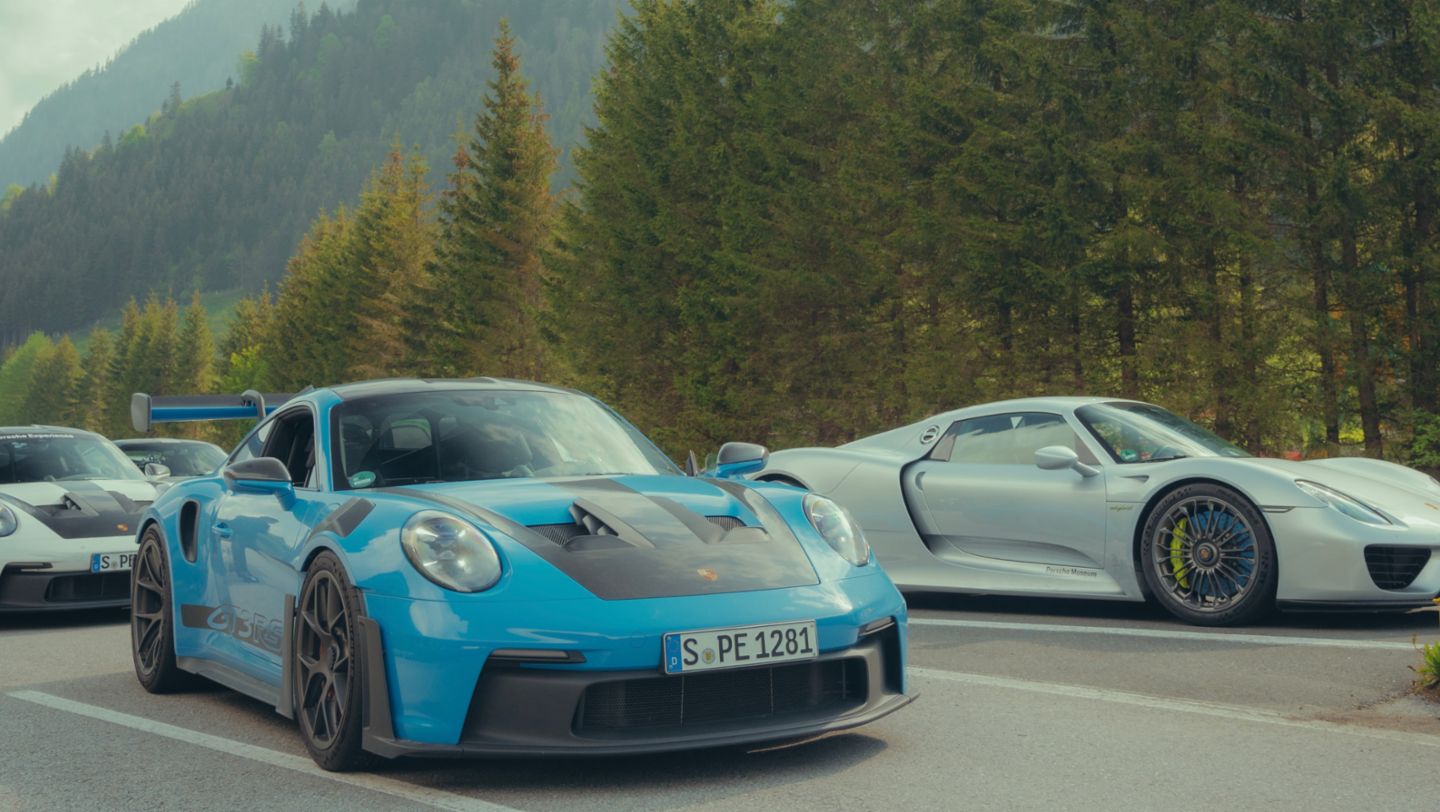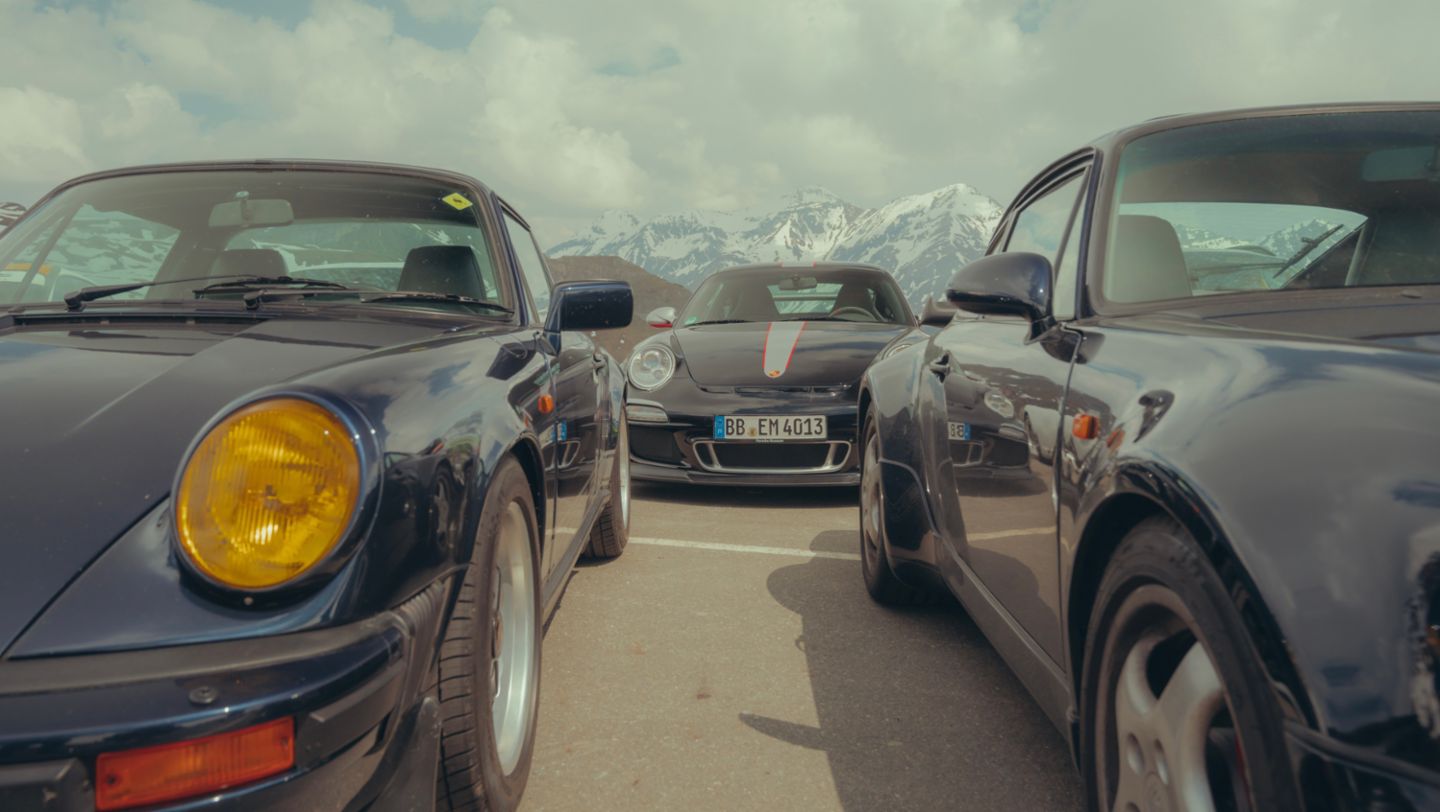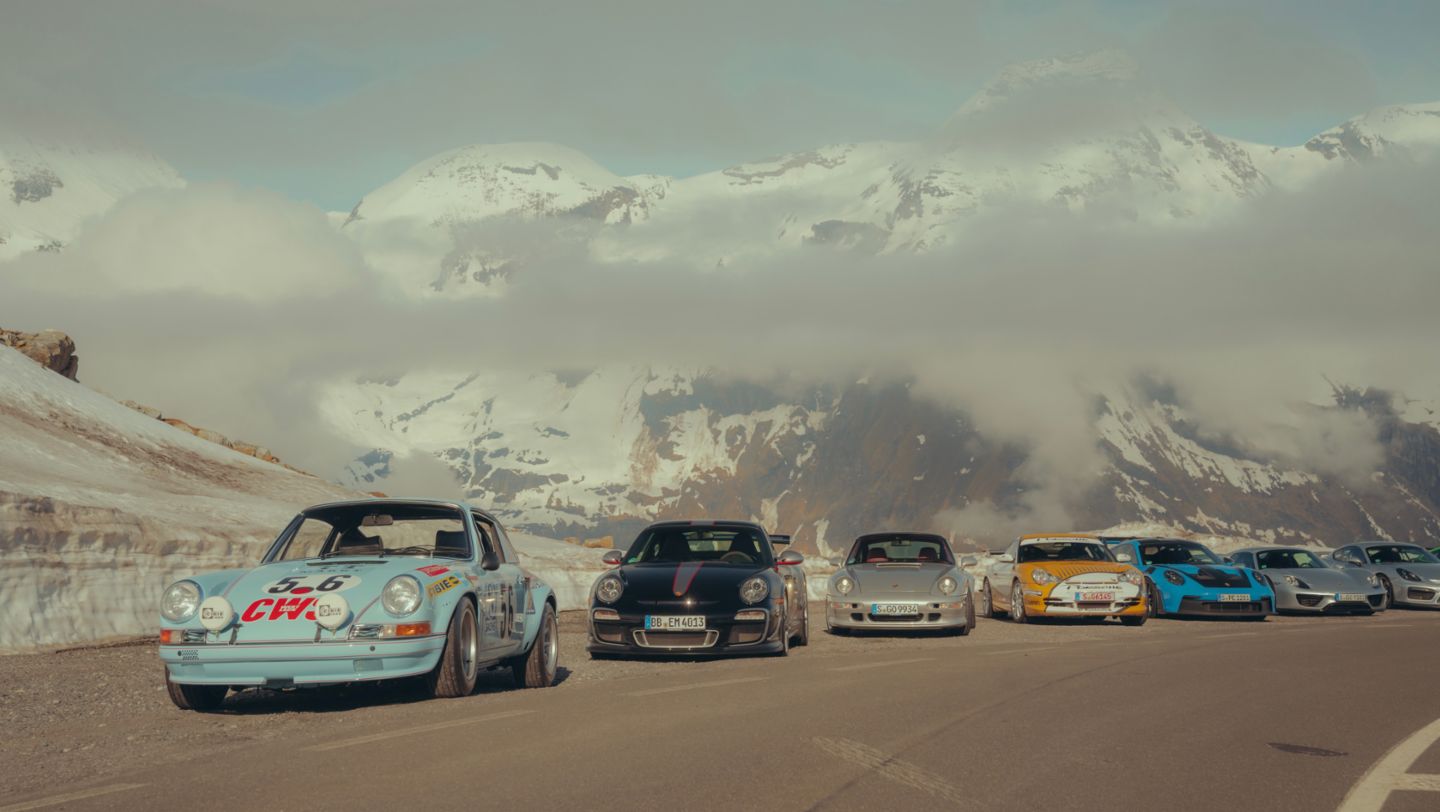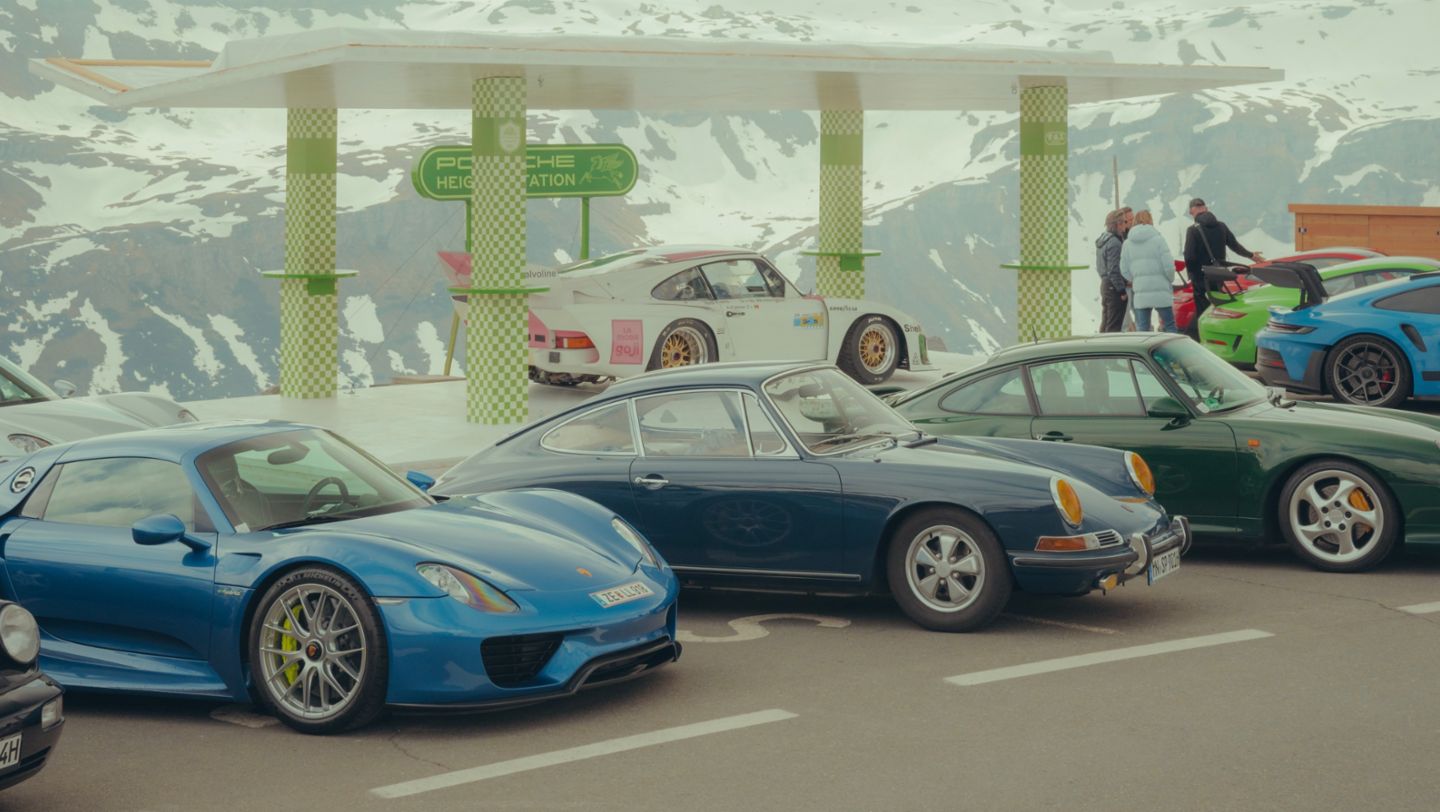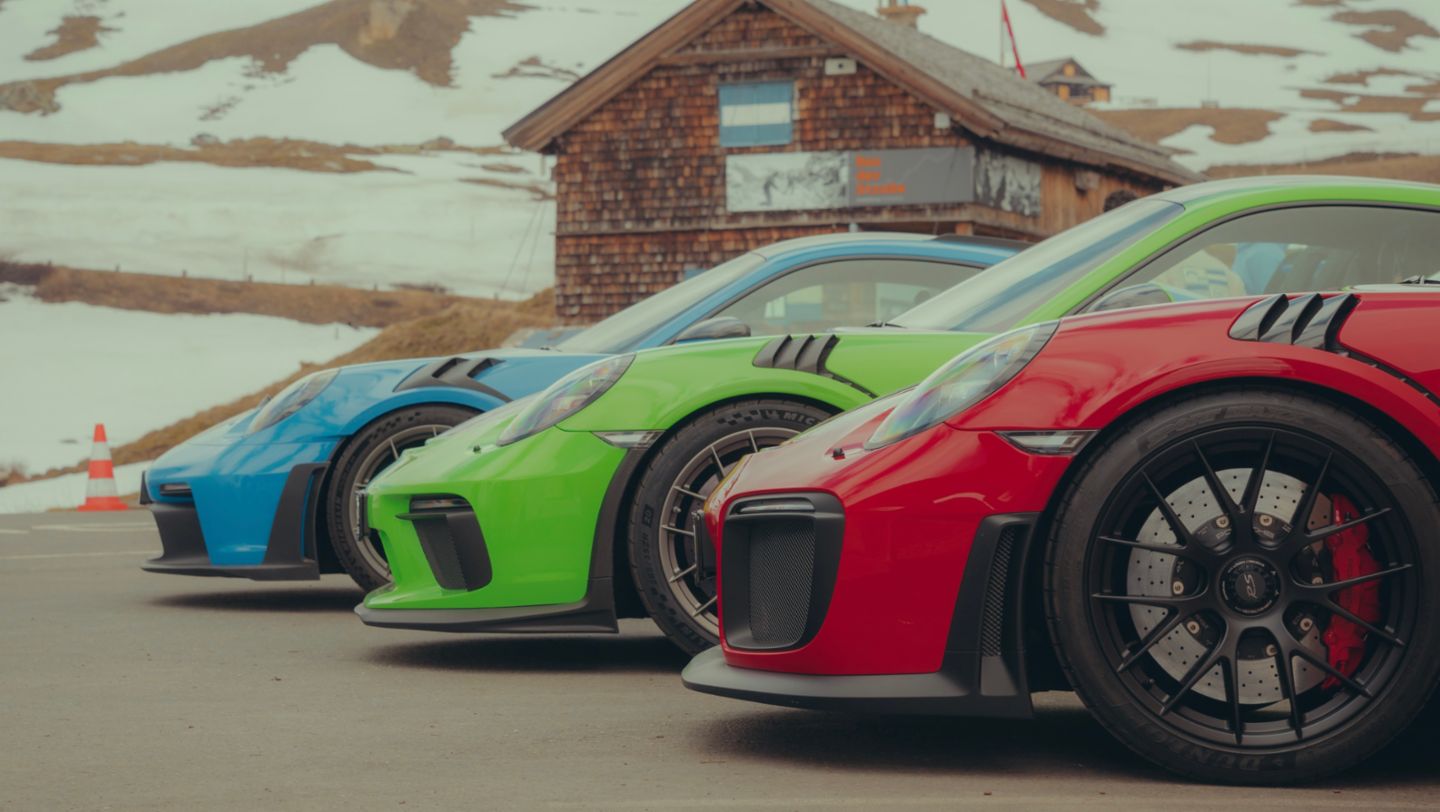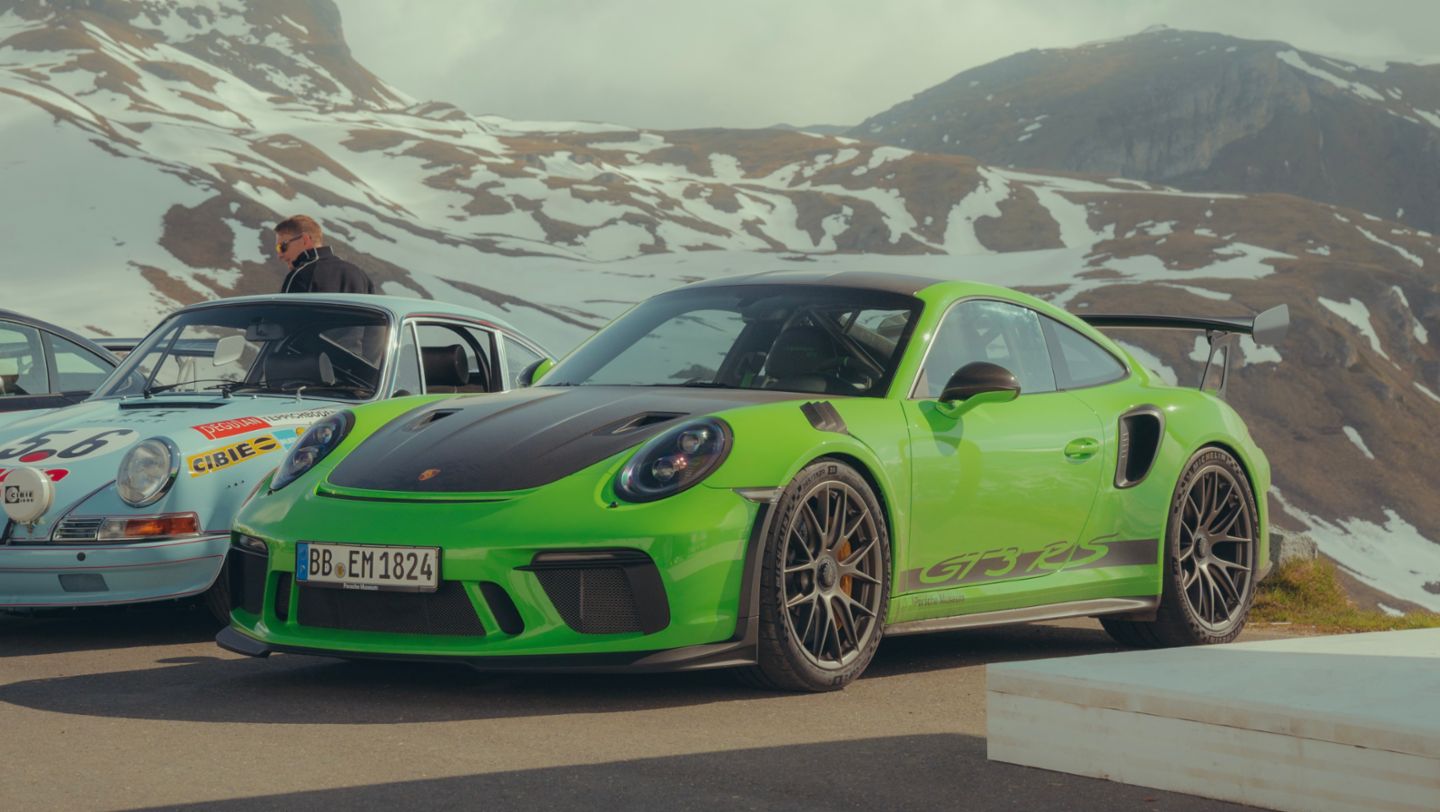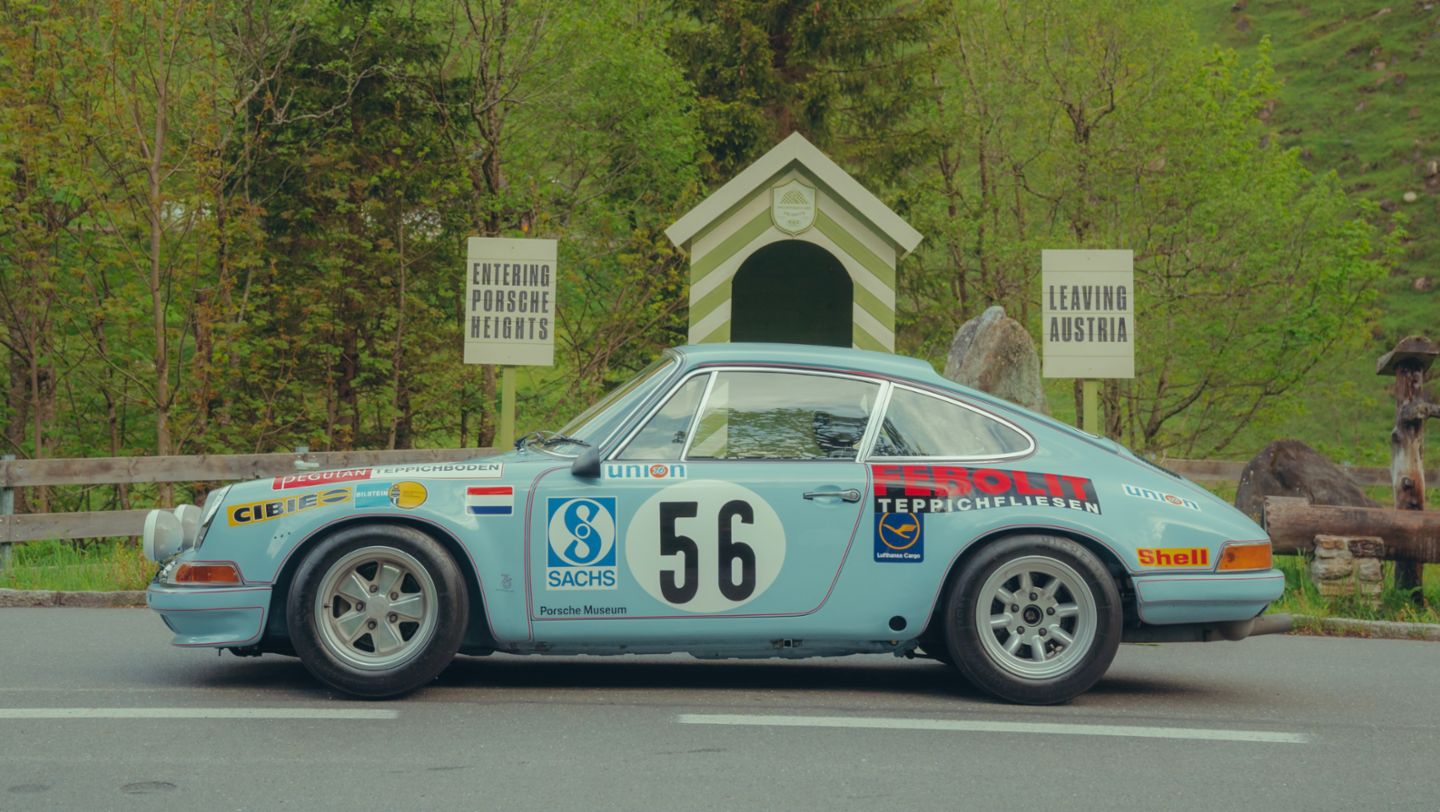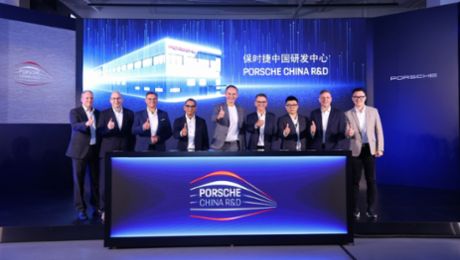The Grossglockner High Alpine Road is one of the world’s great driving experiences and it has just got even better – with the opening of F.A.T. Mankei. Unsurprisingly, the restaurant and coffee stop has an incredible motoring pedigree, as it is the brainchild of Ferdinand Porsche, the grandson of the founder of the Porsche company and great-grandson of his namesake, the technology pioneer. Its opening over the weekend was run in conjunction with Porsche Heights, a programme that saw a series of Porsche icons, both human and automotive, make the journey to the top of the mountain to celebrate.
“My grandpa [Ferry Porsche] used to test the cars for overheating and so on by driving them up from Gmünd and over the Glockner pass, right past the door here,” explains Ferdinand. “It was on one of these test drives that he found Zell-am-See. My uncle [Ferdinand Alexander Porsche] set up his studio, Porsche Design, there and the Grossglockner is the red line that joins the two places.”
Zell-am-See was also the base of the original Ice Race, which was recently revived by Ferdinand Porsche and his friend, Vinzenz Greger, in 2019.
“We kept thinking that we wanted to do stuff like it more than once a year,” he continues. “So, when this place came on the market, it made a lot of sense to buy it. I asked my dad [Dr Wolfgang Porsche, the Chairman of the Supervisory Board of Porsche AG] and he told me that if I didn’t buy it, he would!"
“It was a wooden hut that had burned down in the 1980s, so rebuilding it has been a great opportunity to bring my passions for cars and architecture together.”
The buildings, a traditional-looking main restaurant and a hyper-modern pavilion next to it that will contain a frequently rotating exhibition car, are sympathetic to their surroundings in the middle of the natural park. Designed by Ferdinand Porsche and his colleagues at Steiner Architecture, it features cleverly layered natural wood that will age beautifully at different rates, including a lattice over the glass of the pavilion to make sure that birds don’t fly into it.
Marlis Gottwick, the Project Manager for Global Events and Motorshows at Porsche, was immediately very enthusiastic about the opportunity to support the opening of Mankei. “At Porsche, we are first and foremost car enthusiasts,” she says. “We’re celebrating 75 years of Porsche sports cars in 2023 and this has been a great opportunity for people from Porsche to hang out, drink coffee and talk cars with some totally like-minded people. We drive up the mountain every morning in a convoy with a mixture of customers and cars from our collections and have been joined by some very cool people from the Porsche community.”
One of them was Grant Larson, Director of Special Projects at Style Porsche who, among other career highlights, helped design the Boxster, the Carrera GT, 997-generation 911 and the new 935. “We’re here with two Sport Classics – an original 997-generation one and a 992 – and we drove them down yesterday from Zuffenhausen,” he says. “This place is unbelievable … It’s a fantastic location and getting here on these roads was a dream. It’s a fun way to meet some of the fan base and to see how Porsche is perceived. It’s not only about the cars. It’s about the like-minded people. I love it”, says Grant Larson.
Those like-minded people had come from far and wide. One, Shaheen Karimian, had flown all the way from Southern California and rented a Porsche Cayman to drive to the event. Not far behind him was a convoy with a 918 Spyder and an immaculate 924 in it. Others had made automotive pilgrimages from all four corners of Germany and Austria as well as France, Switzerland, Belgium, Slovenia and as far away as Northern Ireland. Many of them took advantage of the opportunity to be driven by the professional drivers of the Porsche Track Experience in a pair of 911 GT3 RS cars.
Sabine Sinn, a project manager for the Porsche Track Experience explained: “In general, we organise driver training for customers all over Europe. We are offering a new programme called the Master 911 GT3 RS Training, which is why we brought the two cars here. We thought it was just the perfect place to bring them because there are so many car enthusiasts here. We all share the same passion and it would be amazing to see some of them on the race track with us in the future.”
Back to Ferdinand Porsche, walking past the Le Mans-winning Porsche 962 of 1994. “This is one of my favourite cars and I decided to name the new business F.A.T. after the now-defunct logistics company that sponsored it,” he explains. Just round the corner from it is what looks like a Porsche 919 Hybrid racer on four big snow tracks. “The pass is closed for half of the year and Christina [restaurant manager of F.A.T. Mankei] wanted something to drive up in and check on the place,” he jokes about the show car he’s had built.
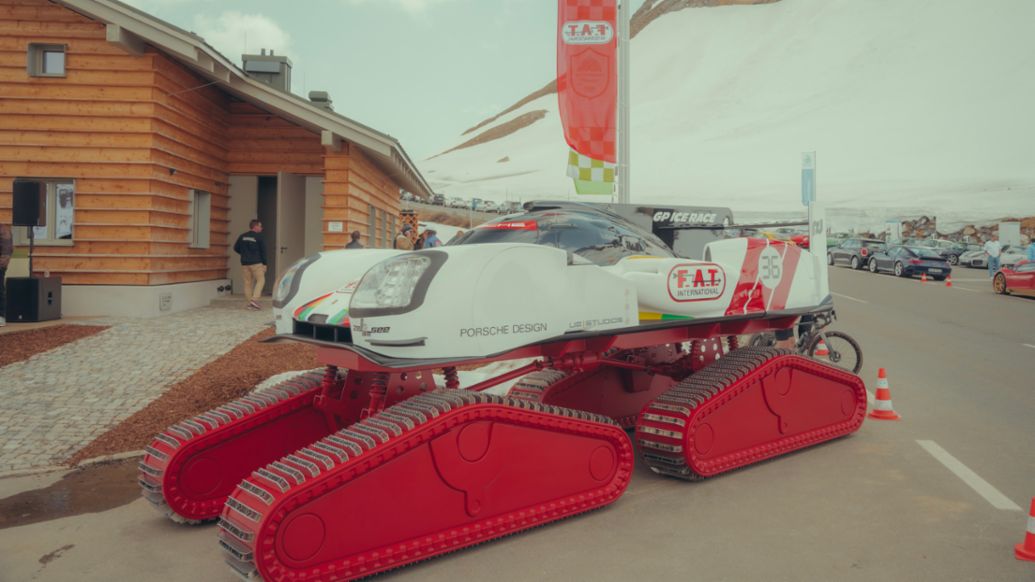
“It’s been great meeting to the people who’ve come this weekend," he says. "They’ve brought cool cars and they're in a very good mood. How could they not be, having driven this road? Everyone’s been open to everyone else because it's kind of small in the end. They’ve met; they’ve mingled; they’ve talked to each other about cars, architecture, design. And they've enjoyed the great food. They've all been all great …”

